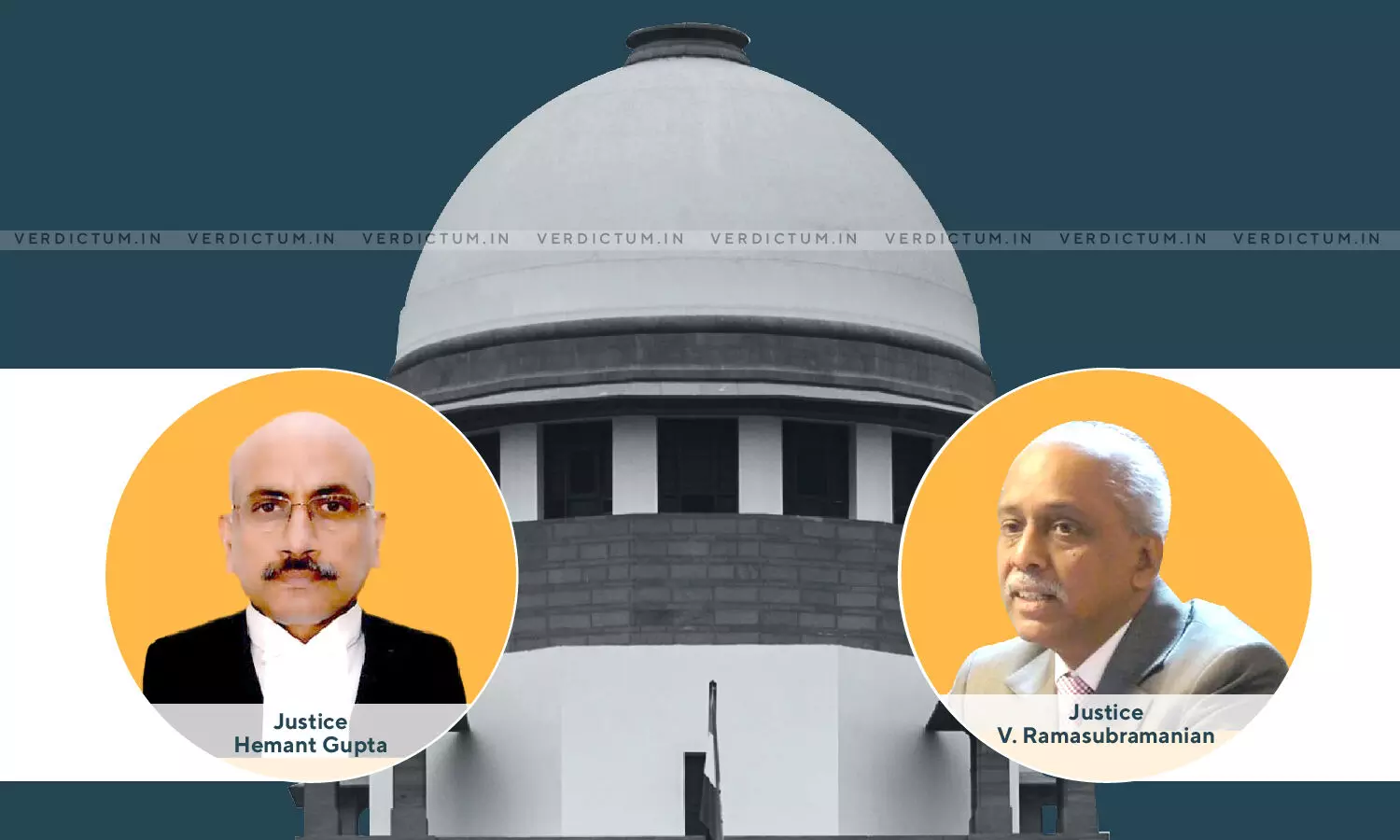
Non-Availability Of Operation Theater For Surgery Is Not Medical Negligence: Supreme Court
 |
|A Bench of the Supreme Court consisting of Justice Hemant Gupta and Justice V. Ramasubramanian has ruled in case of alleged medical negligence that no fault can be attributed to the hospital if the operation theatres were occupied when the patient required surgery.
"Operation theatres cannot be presumed to be available at all times. Therefore, non-availability of an emergency operation theatre during the period when surgeries were being performed on other patients is not a valid ground to hold the Hospital negligent in any manner," the Bench observed while setting aside a judgment passed by the National Consumer Disputes Redressal Commission (NCDRC)
"We do not find that the expectation of the patient to have an emergency operation theatre is reasonable as the hospital can provide only as many operation theatres as the patient load warrants. If the operation theatres were occupied at the time when the operation of the patient was contemplated, it cannot be said that there is a negligence on the part of the Hospital," the Bench stated
The Bench was hearing a case between Bombay Hospital and Medical Research Center Vs. Asha Jaiswal & Others wherein, the NCRDC had directed the Appellant to pay a sum of Rs.14,18,491/- along with interest of 9% per annum from the date of filing of the complaint till the date of payment to the Respondents.
It was the case of the complainant that the doctor was on a foreign visit when the patient was under treatment, DSA machine was not working when required to conduct the tests, surgery got delayed as the operation theatre was not available and that the patient was not attended to by the expert doctors.
On the other side, the Hospital and Doctor would contend that the specialized doctors were available at the time of treatment and all tests and treatments were done by them.
The Bench did not entertain the contention about the non-working of the DSA machine and the consequent delay in performing the test and observed that it cannot be said to be negligence on the part of the Doctor or the Hospital.
"The DSA machine is a large, expensive and complicated machine which unfortunately developed certain technical problem at the time when patient had to be tested. Any machine can become non-functional because of innumerable factors beyond the human control as the machines involve various mechanical, electrical and electronic components," the Bench observed and added that the alternative process of angiography was conducted upon the patient.
The Bench further noted that the mere fact that the Doctor had gone abroad cannot lead to an inference of medical negligence as the patient was admitted in a Hospital having specialists in multi-faculties.
"It is well known a medical professional has to upgrade himself with the latest development in his field which may require him to attend conferences held both in and outside the country," the Court observed in respect to such contention of the Doctor being on a foreign visit.
"The experts in the other fields have been consulted from time to time and the treatment was modulated accordingly. In spite of the treatment, if the patient had not survived, the doctors cannot be blamed as even the doctors with the best of their abilities cannot prevent the inevitable," it added.
The Bench asserted that in the present era of super specialization, one doctor is not a solution for all problems of a patient. Each problem is dealt with by an expert in the concerned field and that is what is apparent from the medical record.
"It is too much to expect from a doctor to remain on the bed side of the patient throughout his stay in the hospital which was being expected by the complainant here. A doctor is expected to provide reasonable care which is not proved to be lacking in any manner in the present case," it pointed out.
"No doctor can assure life to his patient but can only attempt to treat his patient to the best of his ability which was being done in the present case as well," the Court added.
The NCDRC had invoked the doctrine of res ipsa loquitur while granting the compensation, however, the Bench ruled that it can't be applied in this case in the absence of any evidence.
A sum of Rs. 5 lakh which was already disbursed to the Respondent by the Hospital through an interim order in 2010 was directed to be considered as the ex-gratia compensation by the Court.
Click Here to Read/Download the Judgment